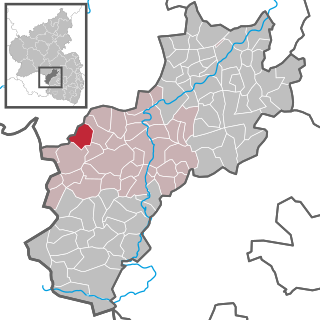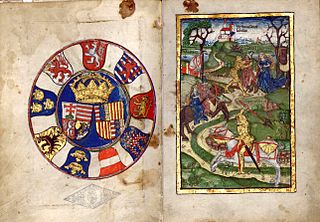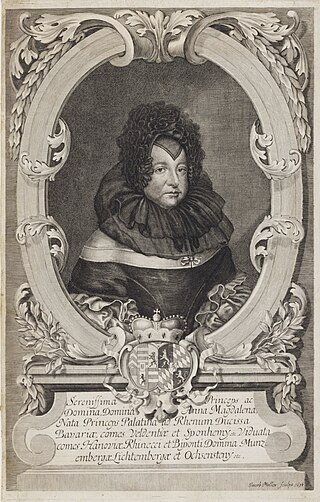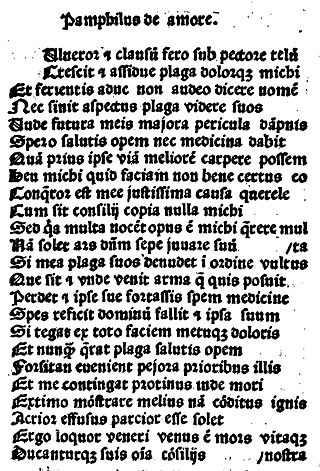
Georg Christoph Lichtenberg was a German physicist, satirist, and Anglophile. He was the first person in Germany to hold a professorship explicitly dedicated to experimental physics. He is remembered for his posthumously published notebooks, which he himself called Sudelbücher, a description modelled on the English bookkeeping term "waste books" or "scrapbooks", and for his discovery of the tree-like electrical discharge patterns now called Lichtenberg figures.

Georg Faustus (sometimes also Georg Sebellicus Faustus , known in English as John Faustus, was a German itinerant alchemist, astrologer, and magician of the German Renaissance. He was often called a conman and a heretic by the people of medieval Europe.

Abu al-Saqr Abd al-Aziz ibn Uthman ibn Ali al-Qabisi, generally known as Al-Qabisi,, and sometimes known as Alchabiz, Abdelazys, Abdilaziz, was a Muslim astrologer, astronomer, and mathematician.

The Alfonsine Tables, sometimes spelled Alphonsine Tables, provided data for computing the position of the Sun, Moon and planets relative to the fixed stars.
Lichtenberger is a German surname. Notable people with the surname include:

Chronica Hungarorum, also known as the Thuróczy Chronicle, is the title of a 15th-century Latin-language Hungarian chronicle written by Johannes de Thurocz by compiling several earlier works in 1488. It served as the primary source for the history of medieval Hungary for centuries.

Achilles Pirmin Gasser was a German physician and astrologer. He is now known as a well-connected humanistic scholar, and supporter of both Copernicus and Rheticus.

Jacob Philadelphia was a magician, physicist, mechanic, juggler, astrologer, alchemist, and Kabbalist.

Thallichtenberg is an Ortsgemeinde – a municipality belonging to a Verbandsgemeinde, a kind of collective municipality – in the Kusel district in Rhineland-Palatinate, Germany. It belongs to the Verbandsgemeinde of Kusel-Altenglan, whose seat is in Kusel.
Abu Ali al-Khayyat, often called by the Latin title Albohali in western sources,, was an Arab astrologer and a student of the astrologer and astronomer Mashallah ibn Athari.

Johannes de Thurocz, was a Hungarian historian and the author of the Latin Chronica Hungarorum, the most extensive 15th-century work on Hungary, and the first chronicle of Hungary written by a layman.
Adam Petri was a printer, publisher and bookseller.

Countess Palatine Anna Magdalena of Birkenfeld-Bischweiler was a daughter of Christian I, Count Palatine of Birkenfeld-Bischweiler (1598–1654) and his first wife, Countess Palatine Magdalene Catherine of Zweibrücken (1606–1648).

Count Adolf III of Nassau-Wiesbaden-Idstein was a son of Count John II of Nassau-Wiesbaden-Idstein and his wife Mary of Nassau-Siegen (1418–1472). After his father's death in 1480, he ruled Nassau-Wiesbaden and his brother Philip ruled Nassau-Idstein. After Philip's childless death in 1509, Adolf III ruled also ruled Nassau-Idstein.

Johannes Engel, also known as Johannes Angelus, was a doctor, astronomer and astrologer from Aichach, near Augsburg, which at that time was a Free Imperial City within the Holy Roman Empire. He practiced medicine in Vienna, and published numerous almanachs, planetary tables and calendars. His Astrolabium planum was published by Erhard Ratdolt of Augsburg in 1488; a second edition was printed by Johann Emerich for Lucantonio Giunti in Venice in 1494.

Roses in Tyrol is a 1940 German musical comedy film directed by Géza von Bolváry and starring Hans Moser, Marte Harell, and Johannes Heesters. It is based on the 1891 operetta The Bird Seller by Carl Zeller, which has been turned into several films.

Juan Planck was a fifteenth-century German cleric turned printer who became a founder of the printing business in Iberia.

The Prophetess of Thebes was a 1908 French silent trick film by Georges Méliès. The film, set in Ancient Egypt, followed the adventure of a king seeing his future foretold by means of a mysterious priestess and a magical telescope. A fragment of the film has been recovered; the rest is presumed lost.

Countess Margarethe von Hanau-Lichtenberg, known upon her marriage as Margarethe, Countess of Nassau-Wiesbaden-Idstein was a German noblewoman who, as the wife of Adolf III of Nassau-Wiesbaden-Idstein, was the Countess of Nassau-Wiesbaden and Nassau-Idstein.
Johannes Petri a printer in Basel and the founder of the oldest existing publishing house in 1488.

















